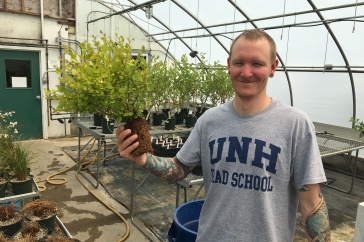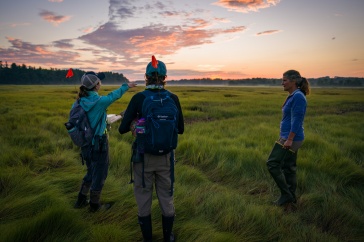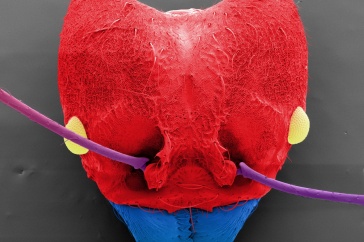
A new National Science Foundation grant will support UNH efforts to understand the impact of three significant global changes — climate warming, the release of nitrogen into the atmosphere and invasion by non-native plants — on soil located in the American Northeast. The grant, to professor of natural resources and the environment Serita Frey, is for $243,760.
“Soils play a vital role in climate change because they contain the largest amount of carbon in land-based ecosystems in the form of organic matter which contains critical nutrients,” says Frey, who will synthesize 18 years of data collected from four global change experiments at the Harvard Forest Long-term Ecological Research site. “The warming of soils can accelerate the decay of organic matter and release that stored carbon into the atmosphere. Our goal is to better understand how warming in conjunction with other global changes influences the decomposition process, and ultimately, the amount of carbon stored in soils.”
The work has significant implications in New Hampshire and throughout the Northeast for economic activities and the survival of ecosystems that serve as natural habitats for native plant and animal species and could further accelerate the ongoing impact of climate change.
“There is no question that climate change poses a very real threat to New Hampshire and the Northeast’s environment, economic vitality and way of life,” says U.S. Senator Jeanne Shaheen (D-NH), who announced the funding in conjunction with U.S. Senator Maggie Hassan (D-NH) and Congressman Chris Pappas (NH-01). “Each Granite Stater is affected by climate change, and the impact to our state will increase over time unless we take action now. Funding like this NSF grant awarded to the University of New Hampshire that helps us understand the serious, consequential impact of climate change on one of our most essential natural resources — our soil — will be a crucial part of efforts to prevent, combat and mitigate its consequences.”
-
Compiled By:
Beth Potier | UNH Marketing | beth.potier@unh.edu | 2-1566



















































